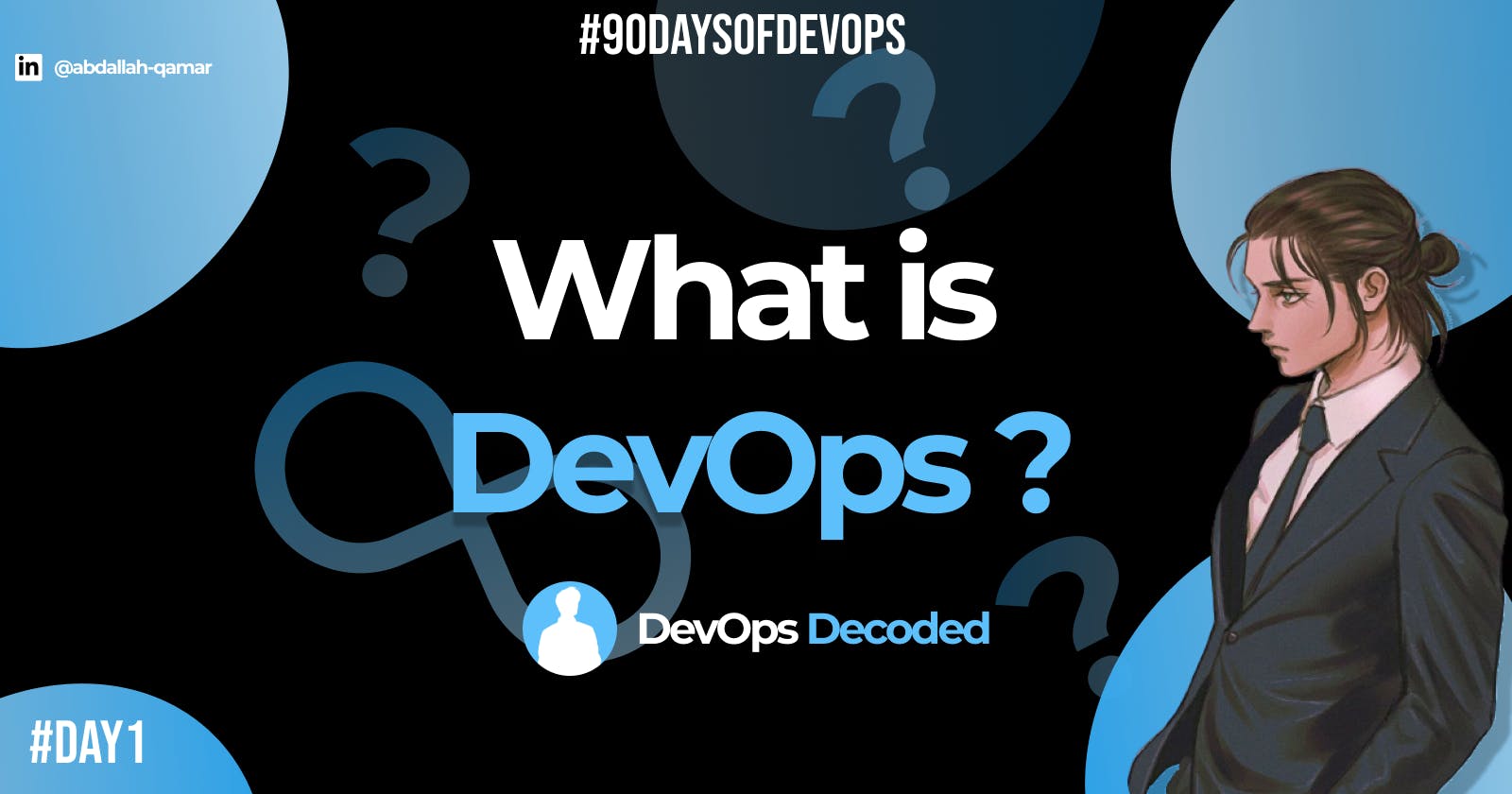Table of contents
⭐Introduction
DevOps is a unique teamwork formula that brings together software developers (those who design applications) and IT operations teams (those who manage software in production). They collaborate to make software delivery smoother, faster, and more dependable. 🚀
In easy words, we can say: Developers are architects designing a house, and IT operators are the skilled craftsmen maintaining it. DevOps acts as the coordinator, ensuring that both teams collaborate to design and maintain the ideal house. 🏡
🗝Some Key Concepts Of DevOps :
👥 Teamwork
DevOps promotes a culture of teamwork, where developers and IT operations people communicate and cooperate closely. This collaboration leads to better results and understanding.
🧩 Continuous Integration (CI)
DevOps encourages developers to exchange their code with others frequently. It's like putting together a puzzle, where the pieces fit nicely and flaws are detected early on.
🚗 Continuous Delivery (CD)
Building upon CI, DevOps automates the process of delivering software to users. This means getting the software out to users quickly and safely, like a smooth ride on a highway.
📊 Infrastructure as Code (IaC)
DevOps treats the setup and configuration of servers and systems like a set of instructions, making it easier to create and maintain. It's similar to following a recipe while baking the perfect cake.🍰
👩💻 Monitoring and Feedback
DevOps teams use tools to keep an eye on how the software is performing. Feedback helps them make improvements and fix any issues promptly, just like adjusting the sails of a boat to reach the destination smoothly. ⛵
🎛 Microservices Architecture
In DevOps, applications are built using small, independent pieces that work together. It's like constructing a building with individual bricks, making it easier to modify and expand. 🏢
🔧Automation
Automation is essential to DevOps. It's similar to having helping robots execute repetitive jobs, freeing up time for teams to focus on creativity and innovation.🤖
🔄🚀The DevOps Lifecycle
The DevOps lifecycle is an enthralling journey that brings together various stages of software development and operations in an agile, coordinated movement. It's similar to writing a compelling story, with each chapter contributing to the overall success of the story.

The Stages of the Journey 🗺️🧭:
Plan 📝🗺️
Innovative thinkers meet in the first stage to plan their journey. They establish clear objectives, develop a road plan, and prepare for the journey ahead. They plan the course to success, much like an important mission.
Code 👨💻💻
Next, talented developers work to their full potential, building the software's heart with lines of code. They build the digital essence of the project, much like artists do with their works.
Build 🏗️🔨
The code is brought to life by the builders. They assemble the software gracefully, transforming it from an idea to a practical reality. It's like building a fantastic structure from blueprints.
Test 🧪🔬
After the software is completed, the testers undertake thorough experiments. They ensure the software's strength, resilience, and reliability.
Release 📦✨
The software has been thoroughly tested and polished, and it is now ready for public release.
Deploy 🚀🌟
After that, the code is deployed onto servers which serve the application to the users. You can think of it as a DevOps astronaut launching the software into digital space.
Operate 🛠️🔧
Alert engineers keep a close eye on the software while it runs in its new environment. They maintain and fine-tune the software, much like dedicated mechanics, to ensure it performs optimally.
Monitor 📊👀
Continuous success requires continuous monitoring. Likewise, with trackers, the team observes data and user feedback, making improvements and optimizing the software's performance.
DevOps is a powerful orchestra in which teams work together to create software with agility and security. It's an ecosystem of continual improvement, based on users and accepting failures as opportunities for growth. DevOps automates processes, transforming the development process into a smoothly functioning machine.
♾Why is DevOps important in 2023?
It is because organisations that embrace DevOps can provide software faster, adapt to changes more effectively, and provide a great user experience. It all comes down to working as a team, keeping things running smoothly, and attaining success.🎉
In conclusion, DevOps is the keystone of modern software development, enabling agility, collaboration, and innovation. Its seamless integration of development and operations creates a perfect balance of efficiency and success for businesses all around the world. Accept DevOps and allow it to push your goals to new heights.🏆
✉Endcard:
🎉 Thank you for joining me on this insightful journey into the world of DevOps!
❤ If you found this blog helpful and informative, don't forget to give it a like!
🔄 Share this valuable knowledge with your friends and colleagues, so they can also benefit from understanding the power of DevOps!
👉 Stay updated with my latest posts and never miss out on exciting content! Click that Follow button to join and stay in the loop!
Stay tuned for Day 2...👋
#DevOps #SoftwareDevelopment #Technology #FollowUs #LikeAndShare #StayInformed #90daysofdevops 📚🔍🌈

